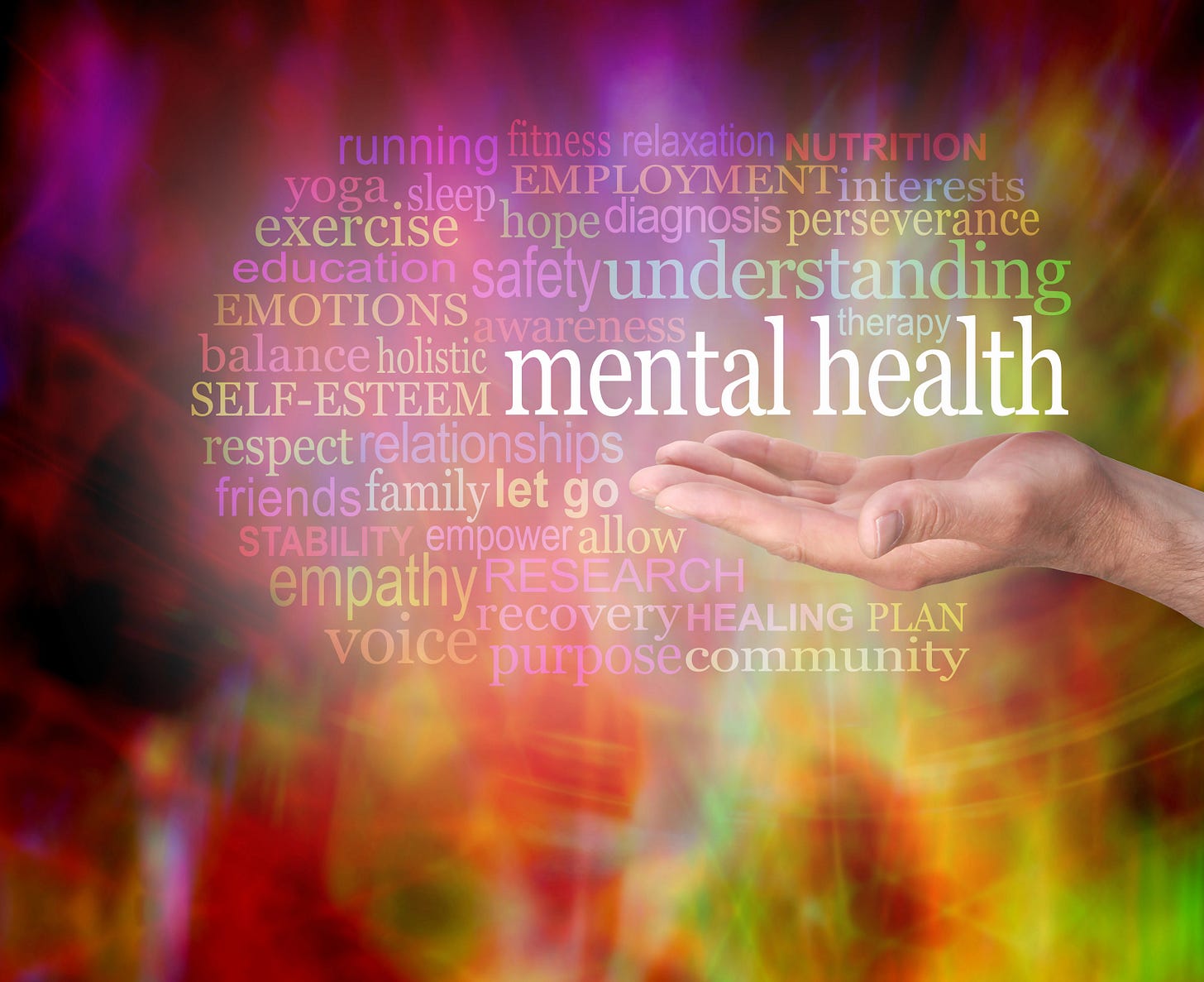Last month, when my younger teens visited their sister at college for the first time, I saw something surprisingly beautiful.
As fourteen-year-old Leah entered Ellie’s dorm room, she plopped easily on the bed. She marveled at Ellie’s wall-hangings. As Ellie showed off her beautiful knitting projects, Leah gasped. When Ellie shifted into a detailed explanation of her latest health challenges, Leah gently asked if she could help clean up Ellie’s room. I watched Leah organize multiple bottles of prescription medicine in a dainty line. When we yanked Leah away, so that Ellie could nap, Leah begged us to bring her back soon.
That’s when I realized that my children have become so accustomed to their sister’s health challenges that it’s part of the normal fabric of our family. Instead of being scared or repelled, Leah and William see past her challenges to appreciate her beauty.
By God’s grace, living with a sibling who faces health challenges has shaped them in unexpected and meaningful ways.
This is part three of my recent series about the siblings of teens with health challenges. In the first post, I focused on how parents can support these siblings, who often carry big feelings and feel neglected, with focused attention and emotional support. In the second post, we heard how another family supported their son by helping him find outside interests within the backdrop of his neurodiverse brother’s anxiety disorder.
Today, I want to explore the subtle blessings that emerge amidst these challenges—the hidden opportunities for growth and connection that often go unrecognized. This doesn’t mean we sugarcoat the excruciating journey of loving a family member with health challenges. It means that we can dare to hope that even the most difficult situations can be used for our good. For parents like me who’ve spent countless hours worrying about the negative ramifications for our children of living in the shadows of their sibling’s mental health struggle, this may bring us peace.

Here are some gifts that I’ve seen emerging in our family.
Compassion
Witnessing a sibling's health challenges often builds a deeper understanding of others' emotional difficulties. Before Ellie hit a crisis point, mental health challenges were a distant topic that William learned about in eighth-grade health class. He read about eating disorders in a textbook. “Depression” felt like an amorphous condition that happened to other, older teens. At age ten, Leah only held a vague, distracted knowledge of mental health issues.
The revelation that their own sister wrestled with these conditions brought reality, clarity, and grief for Leah and William. The term “clinical depression” explained Ellie’s condition, which demystified her emotional volatility and withdrawal from family life. As William and Leah watched their sister decline, they understood the severity of eating disorders. They expressed their fears, anger and disappointment. They also learned to see the sister they loved beneath the cloak of depression.
The dark side of compassion occurs when siblings take on caregiving roles that leave them exhausted and overwhelmed. Parents juggle a delicate balance between sharing relevant information about their struggling teen without creating expectations that these siblings need to step in and save their sister or brother. Siblings may struggle with guilt or an undue sense of responsibility for their sister or brother’s condition. Parents can help prevent this by watching out for signs of excessive caregiving or statements that suggest they feel responsible. Parents can make sure any supportive tasks assigned to siblings are age-appropriate and doable rather than overwhelming.
In families who get the balance right, these siblings may develop a unique type of maturity and sensitivity. As time goes on, they can offer authentic empathy to another friend with mental health challenges. They aren’t afraid of the person with disabilities. In the best-case scenario, they may be the only teen in the room to offer friendship to the kid who needs it.
The Butterfly Foundation, an Australian charity devoted to supporting individuals and families affected by eating disorders, interviewed several siblings of eating disorder sufferers on this podcast. Rose, a 26-year-old university student, shared this:
“Being able to be there for my sister in such a personalized way has shaped my communication skills, my interpersonal skills and ability to relate to people… on a much more vulnerable level… When I overcame…the ups and downs of my family life, I was able to then look at it far more objectively…and see that mental health affects people when I may not know what’s going on for them, when they might not even know what’s really going on for them.”
Mental Health Fluency
Because of Ellie’s recovery in both mental health and physical health settings, William and Leah have become more accustomed to conversations about emotions, therapy, and medical terminology. When Ellie was in a partial hospitalization program, I printed out a list of ideas (like this or this) for emotional regulation and self-care and taped it to the bathroom mirror. William and Leah learned about therapeutic tools alongside us, as we talked about panic attacks and tools like 5-4-3-2-1 Grounding. In that season of Ellie’s mental health breakdown, William and Leah started therapy, too. I wanted them to have a safe place to discuss their emotions, a place that was just for them.
Four years later, all three of my teens appreciate therapy, even if not everyone has a therapist now. There is no shame attached to mental health treatment in our family. It’s as normal to talk about antidepressants as it is to discuss our plans for dinner. We’ve brought William and Leah into family therapy sessions occasionally to work through troublesome issues. Therefore I trust that William and Leah will feel more comfortable seeking support for themselves if they need it as adults.
Two other siblings in the Butterfly Foundation’s podcast reflected on how their sibling’s eating disorder expanded their own mental health fluency, as well as their family’s openness to conversations.
Jessica said, “Early on in [my sister’s] treatment, we started family-based therapy. So all five of us would pile into the tiny room and excruciatingly talk about our feelings... As much as I hated that, I do feel like it was really an integral part of our family healing.”
Adam said, “From my position and for the family as well, [my sister’s recovery] really made a shift of the comfortability of talking about mental health in my family…It’s just so openly talked about now.”
Increased Resilience
The early days of parenting taught me how to stay calm in the face of a wailing child or a toddler tantrum. Parenting a teenager with panic attacks and deceptive eating disorder behavior forced me to take those skills to the next level. This year, I’ve learned by necessity how to stay composed when Ellie’s chronic physical health issues have caused ER visits, emergency doctor calls and an extended hospital visit.
Peter and I have sought to model for our children a sense of calm and clear-headedness as we face these scary moments. Our family prays together. We give hugs and take deep breaths. We ask for help. By trusting that safety can exist even amid uncertainty, we discover a quieter, more subtle kind of peace—one that lives not in the absence of chaos, but in acceptance of our family’s circumstances.
As time has gone on, I’ve witnessed that same security in Leah and William. Even when their sister’s health seems tenuous, they can express concern without becoming bogged down by her illness. When they feel overwhelmed by Ellie’s condition, they lean on trusted friends. All of this stretches their resilience muscles to a new level of strength.
Appreciation for Differences
Living with someone who experiences the world differently often nurtures inclusive thinking and an appreciation for diverse abilities. In our family, we’ve had honest, open conversations about how Ellie sees the world in her own unique way and how, as a neurodiverse individual, she sometimes needs different support. As Ellie’s mobility has decreased, we’re learning about how to support a teen with disabilities.
Recently, we took a special vacation with extended family in a remote location. We knew Ellie would benefit from wheelchair transportation at each airport. Some airports offered a concierge service, in which an airport employee pushed Ellie as we carried her luggage. In smaller regional airports, we needed to hunt down wheelchairs and push Ellie ourselves.
William and Leah didn’t miss a beat. They took turns pushing their sister and dragging her luggage, without complaining.
Grief overwhelmed me. I asked myself, How bad have things gotten that it’s become normal for my teens to push their sister in a wheelchair through an airport?
But then gratitude filled me. I wondered, how is this experience, among many, shaping my teenagers to serve and love differently abled folks? Their proximity to their sister’s health challenges might remove barriers of fear, confusion and ableism. As they become more comfortable with diverse communities, they become people of deeper maturity, heightened sensitivity, and kind empathy.
Conclusion
The journey of growing up with a sibling with mental or physical health issues is complicated. It’s often marked by profound challenges and a range of emotions. But the experience also offers significant and lasting gifts. Often, these siblings develop increased empathy, emotional maturity and a deeper resilience. They learn to listen thoughtfully, love unconditionally, and advocate passionately, not just for their siblings but for others in need.
I so appreciate these words of Christopher Griffiths, from Rethink Mental Illness:
“Keep in mind that “most adult siblings said they had become better and stronger people as a result of their encounter with mental illness.”1
As we consider siblings like these, may we see not just the scars they bear from their loved one’s struggles, but also their strength. Perhaps there’s an invitation for us to trust that all our children will find a silver lining alongside the pain of this journey.
I’d love to hear from you. How have you found beauty among the ashes of mental health or physical challenges, in yourself or your children?
Grateful for your companionship on the journey,
P.S. Before you go, please tap the little ♡. It offers “social proof” and lets others know there’s something useful here. Thanks!
https://www.ccgcinc.org/news-events/siblings-of-children-with-mental-illness-an-unseen-struggle.html






Thanks for this heartfelt post. My family has been deeply affected by mental health issues. I wish we would have had the opportunity for family counseling to heal our family. It is absolutely amazing how you have handled this health crisis with your children and how they are learning important life skills at an early age and are understanding the importance of seeking therapy and medication, when needed. I'm praying now for you and your beloved family.
Beautifully written. 💕 Having a sibling is our first opportunity to learn about ourselves & others and to learn to compromise. I'm so glad to hear your two kids are building compassion, resilience and understanding for their sister. 🤲